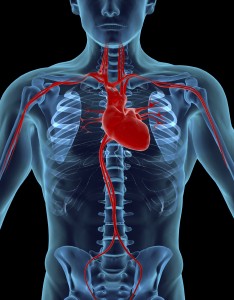-
What Causes Product Defects in Medical Devices?
-
Common Types of Defective Medical Devices
-
Why File a Defective Medical Device Claim?
-
The Potential Defendants in Your Case
-
Proving Your Claim
-
How Long Do I Have To File My Lawsuit?
-
Class Action Lawsuits
Medical devices are critical for many people to move, to breathe properly, and even to live. We rely on them for comfort and health, and we trust those who provide the devices to make safety their top priority.
When a device is defectively designed or improperly implemented by a doctor, the damage to your body can be catastrophic. It represents an inexcusable breach of trust that can inflict irreparable damage on your family and cause physical and emotional trauma that you shouldn’t have to deal with.
For more than 35 years The Oshman Firm has represented victims of medical device defects, reaching settlements and winning verdicts of millions of dollars in compensation for their injuries. We don’t tolerate manufacturer negligence or medical malpractice, and neither should you.
Call our offices today at (800) 400-8182 for a no-cost, no-obligation consultation on your case, and find out how we may be able to help you get the justice you deserve.
- Depuy Hip Replacement Failures
- Drug-Coated Heart Stents

- Intra-articular pain pumps
- IVC Filter
- Zimmer NexGen Knee Implant
- Transvaginal Mesh Patch
Defective Medical Devices
In spite of oversight by the Food and Drug Association, medical devices are often defective in their design or manufacture, or they may be misleading in their marketing. These devices include pacemakers, heart valves, prosthetic knees or hips, x-ray machines and many more products that are important for comfortable living.
The FDA requires manufacturers, distributors and facilities that provide medical devices to patients to report all defects or failures that have caused an illness, a serious injury or death to a user. These Medical Device Reports are used to notify the public of these defects and to identify the flaws that need to be addressed.
Approximately 105,000 MDRs are received by the FDA each year, making it clear that defective medical products are as common a problem as they are serious.
What Causes Product Defects in Medical Devices?
Before they are released for private use, the manufacturer of a medical device is required to prove that the device is safe and effective.
Unfortunately, the tests these products undergo to determine safety normally involves just a few hundred patients, and are not tested in functional, or “real world,” applications. This limits the extent of what the testers can learn about the device’s safety during extended, day-to-day periods of use, and puts users of the device at extreme risk.
Further, the individual components of the product may not have been separately tested, which can lead to one faulty part causing the rest of the device to fail.
Perhaps most shockingly, some products – like many hip implants on the market – can be expedited through the FDA approval process with reduced scrutiny if they are similar to other approved devices.
The medical device attorneys at The Oshman Firm have extensive experience investigating the parts, design and manufacture of a defective device and holding accountable those responsible for its release.
Common Types of Defective Medical Devices
Examples of common defective medical devices include:
- Leaking or broken heart valve implants
- Non-sterilized gynecological devices
- Stopped or malfunctioning pacemakers
- Malfunctioning pain or insulin pumps
- Defective knee or hip implants
- Leaking or infectious breast implants
- Transvaginal mesh implants
As many of these medical devices are placed inside your body, the potential for serious injury is greatly enhanced should they stop functioning, or begin functioning incorrectly. Treating injuries from defective medical products often requires multiple surgeries, and may result in damage to vital organs, your immune system, infection and even death.
Why File a Defective Medical Device Claim?
 When you use a medical device, you are putting your life into the hands of the manufacturer, hospital and doctors responsible for giving it to you. They have an obligation to uphold their duty, which is to provide safe, reliable products that will function the way they are intended. When these products fail, there are often drastic consequences that are devastating to your health, as well as your finances.
When you use a medical device, you are putting your life into the hands of the manufacturer, hospital and doctors responsible for giving it to you. They have an obligation to uphold their duty, which is to provide safe, reliable products that will function the way they are intended. When these products fail, there are often drastic consequences that are devastating to your health, as well as your finances.
You may be able to seek financial compensation for the pain you have experienced as a result of negligence.
Fighting back is the best way to ensure you receive it. Nothing can erase the trauma of a serious injury or the death of a loved one, but holding the neglectful parties responsible will aid in financing your recovery and restoring some peace of mind.
The Potential Defendants in Your Case
Each defective medical device case may be different. Depending on our investigation, there are a number of parties we may seek damages from on your behalf. We will hold anyone involved in your suffering accountable. Defendants are identified by their place on the ‘chain of distribution’ – that is, the path the faulty device took from the manufacturer to you.
Possible defendants include:
The manufacturer. The enormous and lucrative market for medical devices means that device manufacturers may rush products into circulation in efforts to make as much profit as possible, as soon as possible.
The testing laboratory. The laboratories that performed tests on the device may be liable for negligence if they missed defects in the design or application. It may be particularly useful to pursue action against them if they operate independent of the manufacturer.
The medical sales representative. Sales representatives often meet with doctors and physicians on behalf of the manufacturing company. If the sales rep recommended the device that ultimately proved defective and caused your injury by mischaracterizing its safety, they may be liable for damages.
The doctor. If the doctors who recommended the device failed to provide proper instructions on its use, or about the potential dangers of its use, they may be liable for your injuries.
The hospital or clinic. As part of the chain of distribution, the hospital or clinic in which you were given the device may also carry liability for your injuries.
The retail supplier. Retail supply stores are also part of the chain of distribution between the manufacturer and you. This includes drug stores, pharmacies and other retail suppliers.
If your claim includes doctors, hospitals or clinics as defendants, you may qualify for a medical malpractice claim. Your defective medical device attorney will be able to provide more information on what kind of lawsuits The Oshman Firm may be able to file on your behalf.
Proving Your Claim
Winning your claim will depend on your medical device lawyer proving three things:
- That an injury occurred.
- That the medical device in question was designed or manufactured with defects, or that it was defectively marketed.
- That the defect or improper marketing caused the injury.
The first issue will likely be self-evident – you or a loved one has suffered an injury, and are seeking restitution for your pain and suffering. A good defective medical device attorney will use all of their resources to prove the second and third issues.
How Long Do I Have To File My Lawsuit?
Each state places a statute of limitations on product liability claims. In New York, you have three years from the time the injury occurs to file a claim and seek damages. However, the longer you wait, the more difficult it may be to prove important facts in your case.
Contact a defective medical device lawyer as soon as possible after an injury. The faster we can begin our investigation, the stronger we can build your case.
Class Action Lawsuits
If you have been injured by a defective medical device, it’s likely that other people have as well. In cases where multiple persons have suffered similar injuries, a class action lawsuit may be filed against a common defendant. Or, you may be able to join in on a class action lawsuit that is already being litigated.
Joining a class action suit has several advantages:
- Lawyers involved with the lawsuit will essentially become your representation as well. This could prove beneficial if they have experience in suing larger companies.
- Potentially troublesome legal issues, such as where to file your claim, become much simpler
A class action lawsuit is not always the best answer. You should speak with an attorney about your options.
The defective medical device lawyers at The Oshman Firm have over 35 years of experience in manufacturer negligence and medical malpractice law. Contact our legal team today at (800) 400-8182 for a free consultation.
We’ll discuss your best options for filing a claim and tell you what we can do to help.
